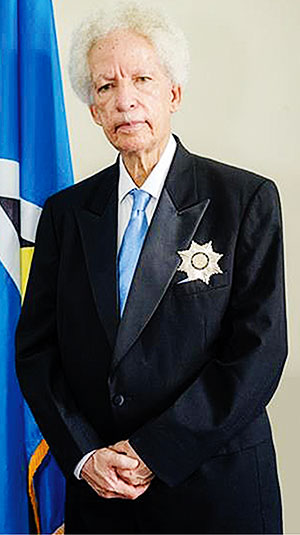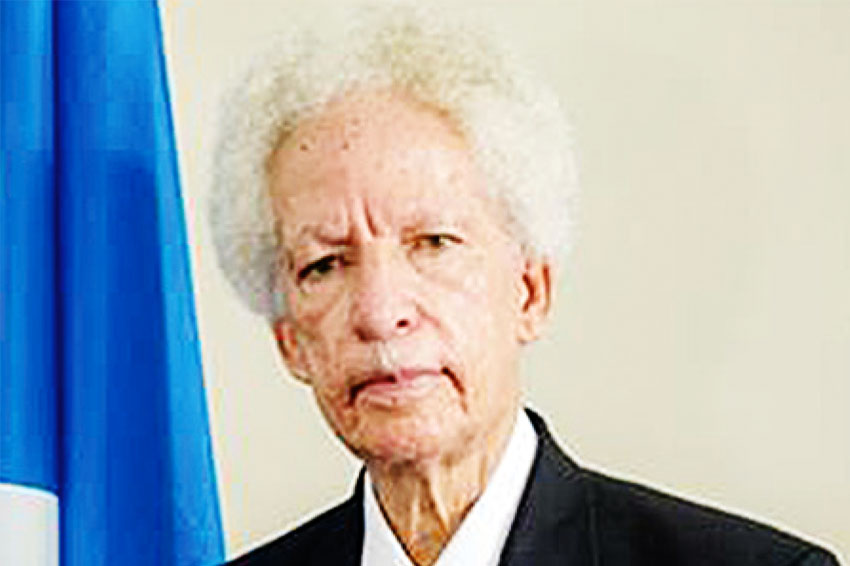CRIMINALS have been put on notice as the government plans to adopt a more strategic approach to combating crime and enacting stiffer penalties for certain crimes during the course of this year.

Governor General Sir Neville Cenac, during his delivery of this year’s Throne Speech — his first — at the opening of the Third Session of the Eleventh Parliament Tuesday, made it clear that things will change, not only in the police force but with the Criminal Code as well.
He said that where the police force is concerned, there will be improvements in internal communication, more modern technology will be incorporated, there will be increases in foot, mobile and maritime patrols throughout the island — and a new Crime Management System will be introduced that will assist in monitoring and recording crime.
“In order to bolster the strategic approach and increase the potential for success, training of our police will continue, and will cover such areas as interviewing and investigative techniques, the approach to sexual offences, evidence and the treatment of witnesses,” he said.
He said that by the end of this fiscal year, government anticipates a Use of Force Policy, a Code of Ethics, a Succession Plan and a Five-Year Strategic Plan would have been introduced within the police force with a view to improving police administration.
“Crime is a national concern and responsibility, and communities are a critical part of the solution. Therefore, a full-fledged community policing programme will be rolled out and we urge all citizens and residents of Saint Lucia to support this endeavor for the sake of Saint Lucia, the only home we have.
“Not only will physical conditions be improved by the upgrading of police stations, but welfare concerns will be addressed, and a chaplaincy will be provided to cater to the spiritual needs of our police men and women and enhance their moral and ethical growth,” Sir Neville added.
Government, he said, will be revising the Criminal Code to incorporate stiffer penalties for persons convicted of all forms of exploitation, such as human trafficking, sexual offences and gender-based violence.
In addition to this, laws regarding the protection of the vulnerable persons in the society, including the elderly and the young, will also be reviewed.
He also further said that codes of practice governing the detention, treatment, questioning and identification of persons by police officers will be introduced to supplement the Evidence Act and employ procedures which accord with the country’s socio-cultural and legal environment.
“My government recognizes that despite our best efforts, children, on occasion, run afoul of the law. The Child Justice Bill will establish the judicial process for a child who is in conflict with the law. It will allow for the designation of a place of assessment and, where necessary, a secure residential facility during the judicial process. The Bill will also ensure that the child is provided with an attorney, that the process is expeditious and that the child is given an opportunity to respond before decisions are taken which affect him or her,” Cenac said.
He made it clear that the 1967 Public Assistance Act will be reviewed with the Department of Equity, Social Justice, Empowerment and Human Services spearheading the review and reform of the public assistance programme.
This, he noted, will result in a modern Social Protection Bill , which once enacted will repeal the 1967 Act and provide the backbone and legislative base from which all social agencies will operate.
The Governor General also said that government intends to enact Family Law legislation, including that which will remove discriminatory provisions in existing laws relating to children, and will secure parental rights.
These laws, he said, will also bring Saint Lucia into compliance with its international law obligations under the Convention on the Rights of the Child, (CRC) and the Convention on the Elimination of All Forms of Discrimination Against Women, (CEDAW).
“The Child Care, Protection and Adoption Bill underpins the policy direction of my Government, that if a child is temporarily or permanently deprived of his/her home or environment, or cannot be allowed to remain in that environment, in his/her best interest, the child is entitled to special protection and assistance from the State,” Cenac said.












![.[L-R] Parliamentary Representative for Castries Southeast, Lisa Jawahir & Talk show host, Timothy Poleon](https://thevoiceslu.com/wp-content/uploads/2026/02/Lisa-Jawahir-Timothy-Poleon-380x250.jpg)
![Public Service and Utilities Minister Stephenson King delivered remarks [Photo credit: VP]](https://thevoiceslu.com/wp-content/uploads/2026/02/Stephenson-King-380x250.jpg)


Can someone explain why penalties are documented in “maximum penalty/fine” instead of “minimum penalty/fine”